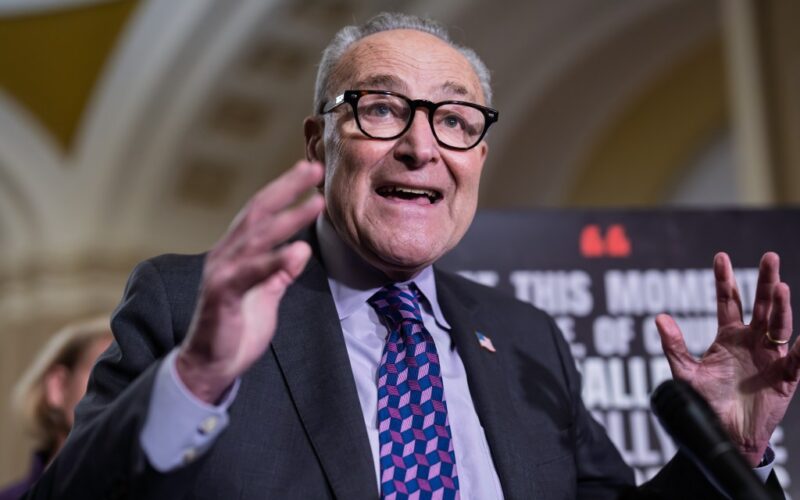After more 40 days of government shutdown, during which many federal workers received no pay and people across the nation faced diminished government services, canceled flights and the looming prospect of a sudden shutoff of SNAP benefits, a group of eight Democratic senators broke with Minority Leader Chuck Schumer and the caucus to reach a deal with their Republican counterparts to reopen the government.
So what was achieved for all the pain of the millions who suffered? The Senate filibuster held firm, but Democratic unity hasn’t and Schumer, who opposed the deal of the eight, is facing calls for his ouster for not being able to stop it.
The eight senators who voted with the GOP didn’t get much of anything in return, just a promise of a future Senate vote on subsidies for Obamacare premiums. But there is no certainty that it will pass the upper chamber or that the House will even consider it. Or that President Trump will approve it.
They may as well have announced that they reached a firm commitment from Lucy to hold the football for Charlie Brown. Even if House Republicans — a group whose leadership is so craven that it has voluntarily abdicated a chunk of its power to Trump — does allow a vote on the subsidies, there’s absolutely no guarantee that such a vote would pass. In fact, it’s almost certain that it would fail, considering that GOP legislators opted to shut down the government for the longest stint in American history in order to avoid even negotiating.
If and when the future vote happens and fails, or if there is no vote at all, what then? The Democratic defectors have spent the past few days saying that in that case, their Republican colleagues will have to answer to their angry constituents for higher insurance costs, but when have they ever cared about that? The GOP is in the midst of a nationwide campaign to gerrymander their own voters and ensure a permanent majority anyway.
Let’s not forget why Democrats thought so hard on this issue in the first place for more than a month. The Obamacare subsidies are essentially the only thing keeping millions of people able to afford health care. Without them, many will simply go without, which will not only be terrible for their own long-term health, but raise costs and reduce options for everyone else.
Fewer people buying insurance means that the risk pool — the number of people who are collectively sharing the risk — gets smaller, which means costs get higher. It also means that emergency room visits go up and doctors, clinics and hospitals that might already be struggling could be forced to cut back on services or close their doors entirely.
It’s ironic that these Democrats gave up on the fight just days after last week’s election results showed surprising strength for Democrats and the absolute toxicity of the Trump brand nationally. Maybe the growing curtailed flights caused the shift.
But with the return of the House today to vote on the end of the shutdown, back for the first time since Sept. 19, the Democrats will be gaining a new member as Speaker Mike Johnson will finally do his duty and swear in Arizona Rep.-elect Adelita Grijalva, who has been waiting seven weeks to be seated and who immediately thereafter will sign the discharge petition to release the House’s Epstein documents.
Just as the shutdown had to end, the Epstein files will have to come out.








